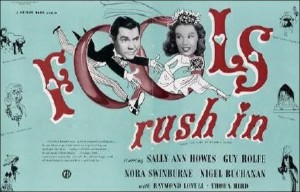Life is usually made up of choices that we make along the way. All of our choices have consequences and change our destinies. It was this reality that Robert Frost so poignantly pointed out to us in his little poem, “The Road Not Taken.” After he had made his choice to travel on one road rather than the other, he says, “I shall be telling this with a sigh somewhere ages and ages hence: two roads diverged in a wood, and I, I took the one less traveled by, and  that has made all the difference.” We all know what this is like because we’ve all looked down the roads that diverge from yellow woods and made our choices. In Ecclesiastes 7, Solomon has been pointing out that some choices bring about better results in life than others. His presupposition is that we still stand at the crossroads of choices that we still make every day. He wants us to take the road that leads to a fuller more meaningful life. He said that a good name is better than great riches. He said it’s better to go to a funeral than to go to a party. He said sorrow is better than laughter. He said that it is better for a man to hear the rebuke of the wise than to hear the song of fools. Then he told us that where a road comes out is more important than where it begins. To slow us down to weigh the choices we make a little more carefully, he tells us in Ecclesiastes 7:8, “…the patient in spirit is better than the proud in spirit.”
that has made all the difference.” We all know what this is like because we’ve all looked down the roads that diverge from yellow woods and made our choices. In Ecclesiastes 7, Solomon has been pointing out that some choices bring about better results in life than others. His presupposition is that we still stand at the crossroads of choices that we still make every day. He wants us to take the road that leads to a fuller more meaningful life. He said that a good name is better than great riches. He said it’s better to go to a funeral than to go to a party. He said sorrow is better than laughter. He said that it is better for a man to hear the rebuke of the wise than to hear the song of fools. Then he told us that where a road comes out is more important than where it begins. To slow us down to weigh the choices we make a little more carefully, he tells us in Ecclesiastes 7:8, “…the patient in spirit is better than the proud in spirit.”
We’ve all heard the phrase, “fools rush in where angels fear to tread.” I thought it was Elvis Presley who first said it in his song, “I can’t help falling in love with you.” Musically, however, it was first included in a song written by Johnny Mercer in 1940. Ever since it has been repeatedly used in songs by many others; Frank Sinatra, Ricky Nelson, Bob Dylan, Mamas & the Papas, Charles Manson, Smashing Pumpkins, Brian Adams and even Bow Wow Wow! It’s also to be found in too many more to mention in literature as well as music. Its modern origin, I believe is in Edmund Burke’s speech in which he talked about the causes of the French revolution in 1790. Abraham Lincoln used it in his speech about slavery and revolution in 1854. Even James T. Kirk used it in In Star Trek VI: The Undiscovered Country. He said: “I’m a great one for rushing in where angels fear to tread.” So am I! it more often than not leads to irreversible consequences.
The phrase “proud in Spirit” refers to emotional, passion driven responses. Ecclesiastes 7:8-9 makes that clear. It says those who are “patient in spirit are better than the proud in spirit. Do not be quick to anger, for anger lodges in the bosom of fools.” Jude warns us about the rebellious that are quick to rush in to war where angels fear to go. In Jude 9, Michael is said to have patiently waited for God to act. There is no shame and regret in patience like there often is in impetuous pride. It’s patience that produces character (Romans 5:4). It is foolish pride that brings about regret and longing looks down roads that can never be reversed (Proverbs 16:18).